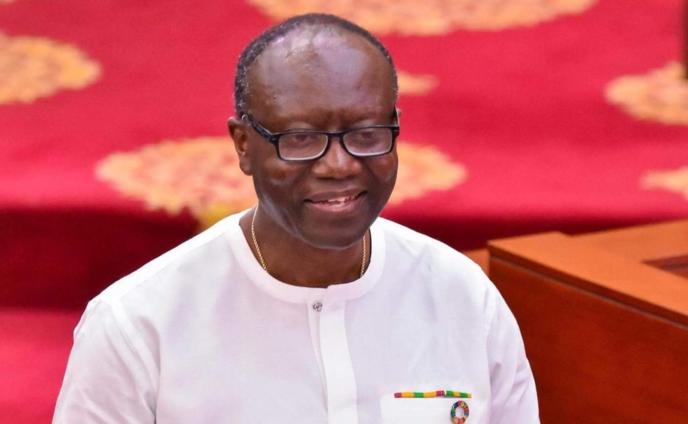Government has unveiled plans for a substantial overhaul of the Electronic Transfer Levy as part of its Medium Term Revenue Strategy.
This move signifies a dedicated effort to revamp and optimize this taxation policy for greater efficiency and effectiveness.
In May 2022, the deeply unpopular tax on mobile money transactions, known as the e-levy was introduced.
When it was introduced, the levy was structured as a 1.5% charge on all electronic and mobile money transactions over ¢100 per day.
The e-levy was designed to raise more money for the government by extracting larger tax contributions from Ghana’s informal sector.
In January 2023, the government reduced the rate of the tax from 1.5% to 1%.
The unique feature of the levy, an exemption threshold for transactions below ¢100 a day, is expected to be removed but remains in place for now, although its real value has been eroded by inflation over the past 12 months.
The levy’s effects – on Ghana’s public finances, its poor, mobile money usage – have been at the centre of intense and polarising public conversations, much of it without empirical basis.
This comprehensive redesign of the Electronic Transfer Levy may represent a forward-thinking approach to taxation in the digital age.
It, however, aligns with the government's broader strategy to modernize its revenue collection methods while ensuring that the burden of taxation is distributed equitably across various sectors of the economy.
Other reforms proposed in the medium-term revenue strategy are outlined below:
Firstly, there's a plan to broaden the withholding tax regime, extending its coverage to various tax types, with the aim of bolstering taxpayer identification, facilitating more efficient tax collection, and simplifying filing processes, particularly for incomes within the informal sector.
Secondly, the strategy includes measures to streamline tax returns and scrutinize the modified taxation system, all geared towards reducing tax avoidance and fostering voluntary compliance.
Furthermore, a critical component of the strategy involves a thorough review of outdated tax categories such as stamp duty, income tax stamp, and vehicle income tax, with an emphasis on aligning them with current market dynamics.
Additionally, the strategy looks to enhance the taxation of rental income, ensuring a fairer contribution from this sector.
Lastly, the plan includes the implementation of the taxation on Gross Gaming Revenue (GGR) for industry players and the introduction of withholding tax on winnings, marking a significant step towards a more comprehensive and equitable tax structure.
Latest Stories
-
Edem Agbana expresses readiness to begin work as MP after completing registration
6 minutes -
Katamanto fire: Gov’t must reconstruct the market, not the traders – Abuakwa South MP-elect
14 minutes -
High Church of Africa inaugurates mineral water factory on 2nd anniversary
26 minutes -
Ablekuma North results collation suspended over another disagreement
33 minutes -
Kwakye Ofosu says 10 Heads of State will attend Mahama’s inauguration
1 hour -
Rwanda-backed rebels seize key town in DR Congo
1 hour -
Nominate Alban Bagbin as Speaker of 9th Parliament – Mahama tells NDC caucus
2 hours -
Russian newspaper says its reporter killed by Ukraine drone strike
3 hours -
Hamas releases video of Israeli hostage Liri Albag as ceasefire talks resume
3 hours -
New York becomes first US city with congestion charge
3 hours -
Severe winter storm puts much of US on high alert
4 hours -
Ebi Bright, Baba Sadiq lose parliamentary elections after court-ordered collation
4 hours -
NPP’s Martin Adjei-Mensah declared MP-elect for Techiman South constituency
4 hours -
EC declares NPP’s Patrick Yaw Boamah MP-elect for Okaikwei Central constituency
5 hours -
NPP’s Charles Forson declared MP-elect for Tema Central after collation
5 hours

